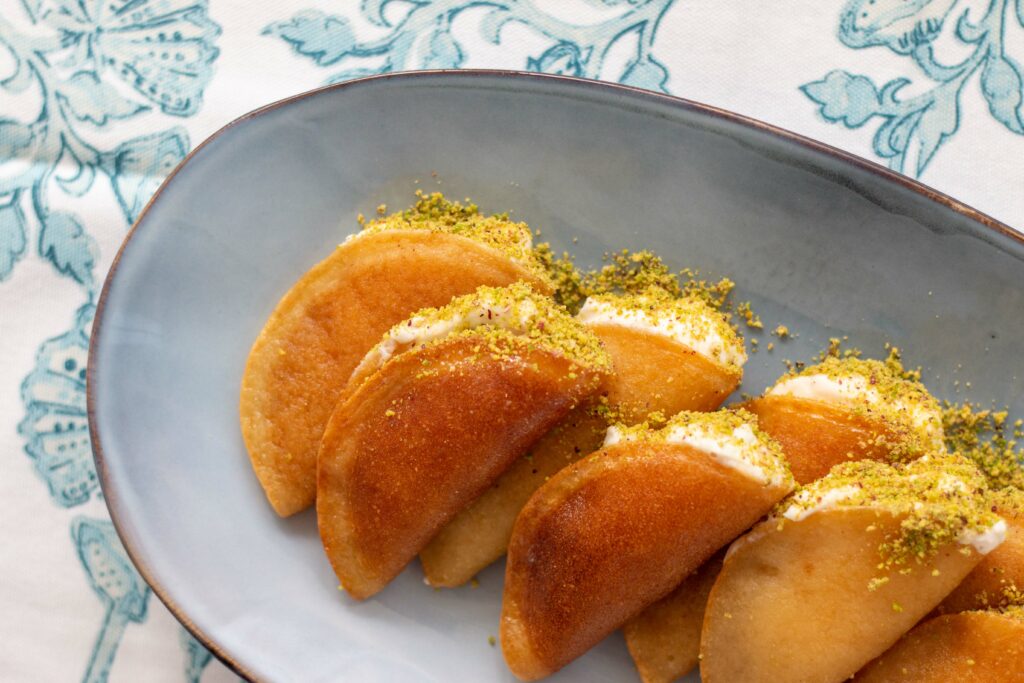As the light of dawn breaks over Cairo, signaling the start of another day of fasting during Ramadan, Egyptians eagerly anticipate the moment when they can indulge in one of the holy month’s most cherished traditions: the sweet, crunchy delight of qatayef. Qatayef, which are dumplings or folded pancakes, are cooked on the stove. A batter similar to this of pancakes is cooked on one side leaving the side facing up with lots of distinct open holes. After they are cooked, they are left to cool down, stuffed and folded, then fried in hot oil until crisp. The final step is to drench it in sweet sugar syrup. They are an integral part of Ramadan celebrations in Egypt. Though deeply rooted in tradition, their exact origins remain shrouded in mystery. The Origin of Qatayef The name qatayef is thought to originate from its texture which resembles the smoothness of velvet fabric, called in Arabic “qatifa.” Qatayef’s history stretches back centuries. However, its exact origin remains unclear, with some accounts tracing its origins to the late Umayyad era, around the Hijri year 132. Others attribute its creation to the Fatimid Dynasty,…




